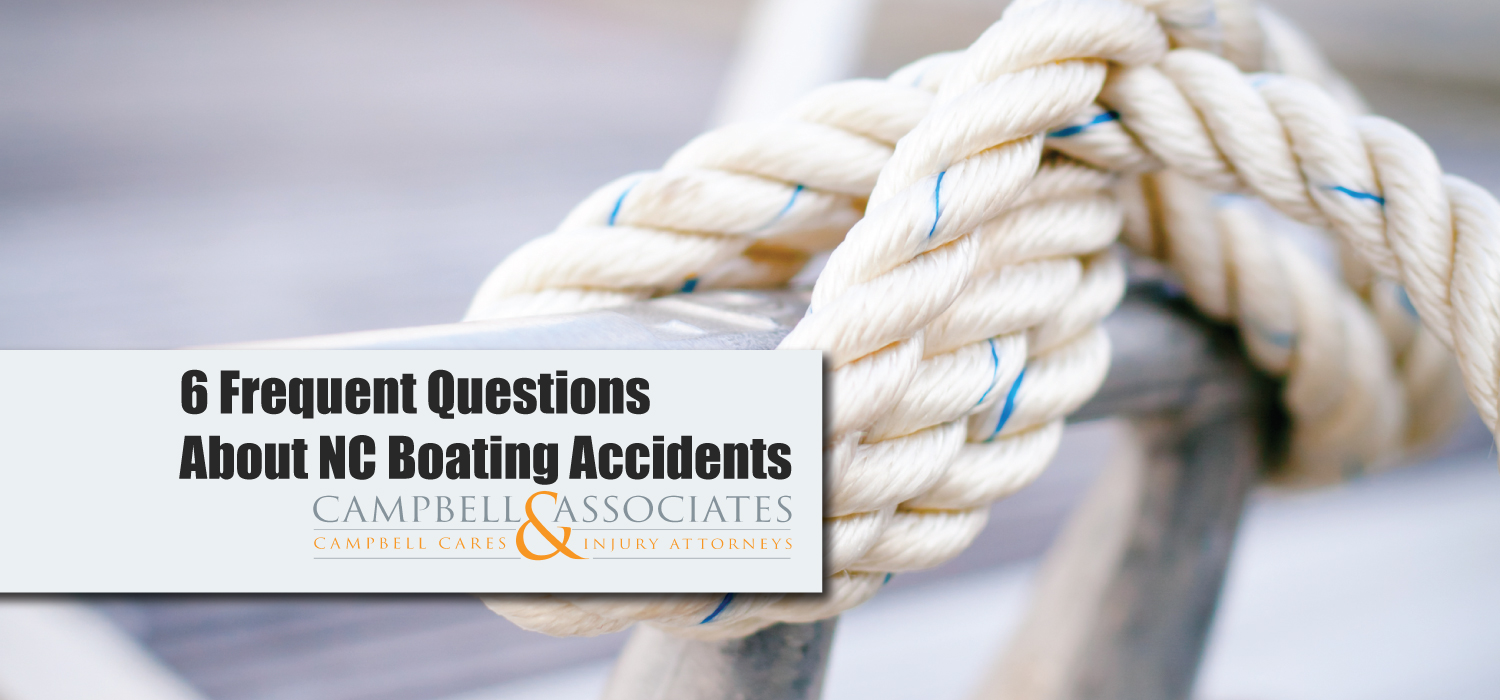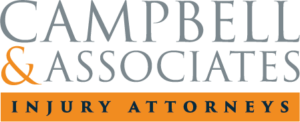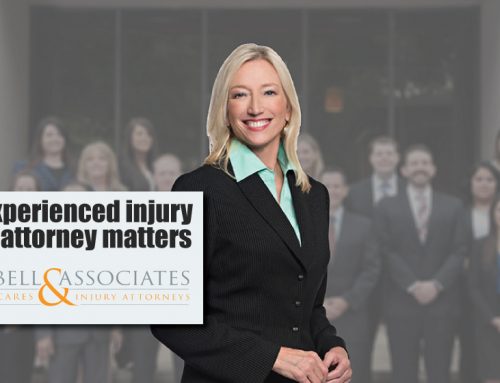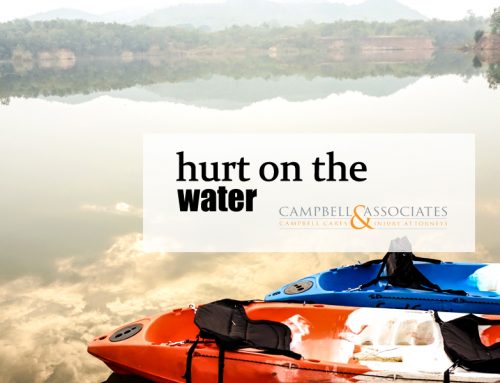6 Frequently Asked Questions About North Carolina Boating Accidents

North Carolina’s mild climate, coastline, rivers and lakes make water-related activities popular among North Carolinians and tourists alike. Unfortunately, improper boating, fishing, kayaking, jet skiing and paddle-boarding can lead to severe injuries, including drownings or other deaths.
The North Carolina Wildlife Resources Commission released findings that 2018 was the deadliest year for boating accidents in the state in nearly 30 years— 35 people died in boating accidents, the highest number of vessel-related fatalities since the 1990s.
When a boating accident occurs, there are often the following questions about liability for boating injuries. This typically involves determining if negligence led to the resulting injury.
If you have been seriously injured in a boating accident, whether on a personal boat or a tour boat, North Carolina law allows you to seek financial compensation for your losses and hardship. Contact a Campbell & Associates lawyer at (704) 333-0885 or schedule a free consultation today.
1. What should I do if there’s been an accident?
If there’s been a collision, North Carolina law requires you to assist others involved in the accident to prevent them from drowning or to remove them from harm’s way. If injury or property damage results, the boat operator must provide his or her contact information and registration number in writing.
In instances of death or disappearance, the Wildlife Resources Commission must be immediately notified within 48 hours. A written report form must be completed in cases involving a loss of life, or property damage over $2,000 providing details including date, time, location, names and registration numbers.
After notifying the appropriate agencies, contact our Charlotte boating accident lawyers to discuss your legal options. If you have been a victim of another’s negligence, we can begin a thorough investigation of the accident.
2. Who is liable for boating accidents?
If you suffer injuries in a boating accident, the person who caused the crash can be held liable. However, figuring out who caused the accident can be difficult, especially if it happens in open water or at high speeds.
Legal responsibility is assumed to belong to the owner listed on the registered certificate and identification number. The family doctrine that applies in car accident cases also applies in boating accidents, particularly in accidents caused by minors—whoever purchases, provides and maintains the vehicle may be liable for the negligence of another family member who operates it.
While the owner must have consented to the family member’s operation, determining what constitutes owner “consent and control” is often difficult because of the doctrine’s ambiguity.
3. Why do boating accidents happen?
Most boating collisions share similar characteristics, and many may have been avoidable if the driver had taken precautions. The most frequent causes of recreational boating accidents include:
• Operator Inattention: According to the Cost Guard, a lack of focus and awareness is the most common contributing factor in boating accidents.
• Operator Inexperience: Boat operators need to not only know the relevant laws for operating a boat, but also know specifics of the vehicle they intend to operate.
• Improper Lookout: Failing to appoint a lookout, particularly while passengers are engaging in water sports, or the lookout failing to adequately pay attention to surroundings, can lead to accidents.
• Reckless Actions by Drivers, Passengers or Skiers: Overloading a boat with too many people, people falling overboard or dangerous actions during water sports can lead to serious boating accidents.
• Equipment Failure: Failure to stay current on your boat’s maintenance, engine and steering could cause it to crash or capsize.
• Speeding: Slower speeds make other boats and hazards easier to see. There are also laws requiring boaters to slow their speed by coastlines or anchored vessels.
• Alcohol Use: Blood alcohol content (BAC) laws are the same for both boaters and drivers: Operating a boat with a BAC of greater than 0.08 is a criminal offense.
4. How can federal laws affect boating accident cases?
Federal maritime law applies to injuries that occur on navigable waters that are used or capable of being used for interstate of foreign commerce.
Navigable water isn’t limited to just the ocean. It also includes harbors, rivers and lakes even in recreational boating cases.
Because federal law may apply, a personal injury lawsuit can be prosecuted in federal court, although this isn’t always the case. Regardless of the jurisdiction in which the case is tried, state or federal, these cases involve a lengthy history of case law and the application of other specific legal standards.
In North Carolina, the doctrine of contributory negligence means that an injured person’s role in causing their injury typically bars them from recovering any damages. Federal maritime law, on the other hand, applies “comparative fault” principles so that the injured party’s damages may simply be reduced by the percentage that their own fault contributed to the incident.
5. What can I do to prevent a boating accident?
Not only will you learn best safe practices for boating, but boating education courses can actually decrease the amount your pay for boaters’ insurance coverage.
In addition to educating yourself, take time to do the following:
• Make sure that all passengers have a life jacket available to them
• Don’t drink alcohol or be under the influence of drugs while on the water
• Regularly check and maintain safety equipment
• Be alert to carbon monoxide poisoning from engines
• Be aware of other boaters and swimmers on or around the waterway while boating
6. What type of boat carries the highest risk?
Open motorboats carry the highest risk of deaths and injuries in a given year (2,220 injuries) with personal watercraft (i.e. jet skis) as the second most dangerous (1,049 injuries).
Cabin motorboats carry significantly less risk (336 injuries) and pontoon boats are considered the safest recreational option (127 injuries).
Contact North Carolina Boat Accident Lawyers
At Campbell & Associates Law, our experienced injury attorneys know that negligent boating can damage lives. If you or a loved one has been injured in a boating accident, our committed attorneys will ensure that your rights are protected.
Call for a free consultation at (704) 333-0885 or online for a free case evaluation.



